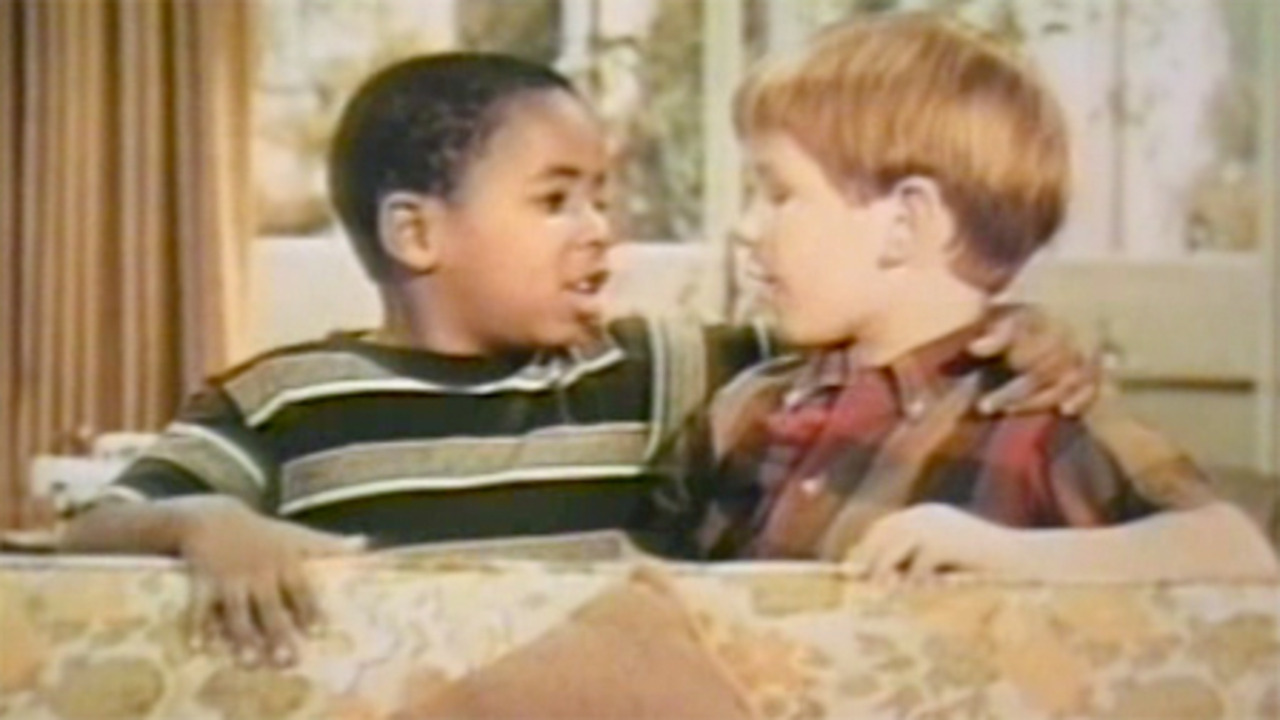Boys Go To Jupiter
$11.50

Dir. Marlon Riggs
1987, USA, 88 min
Rated 18A
Color Adjustment traces 40 years of race relations through the lens of primetime entertainment, scrutinizing television’s racial myths and stereotypes. Narrated by Ruby Dee, the 88-minute documentary allows viewers to revisit some of television’s most popular stars and shows, among them Amos and Andy, The Nat King Cole Show, I Spy, Julia, Good Times, Roots, Frank’s Place, and The Cosby Show. But this time around, Riggs asks us to look at these familiar favorites in a new way. The result is a stunning examination of the interplay between America’s racial consciousness and network primetime programming.
The story, told with wit, passion, and verve, shows how African Americans were allowed into America’s primetime family only insofar as their presence didn’t challenge the mythology of the American Dream central to television’s merchandising function. It demonstrates how the networks managed to absorb divisive racial conflict into the familiar non-threatening formats of primetime television.
Clips from the shows that captivated, amused, and sometimes angered audiences are interwoven with the parallel story of the Civil Rights movement as brought into our living rooms on the evening news. Writers and producers —such as Hal Kanter (Julia), Norman Lear (All in the Family, Good Times, The Jeffersons), Steve Bochco (Hill Street Blues, LA Law), David Wolper (Roots), and others—take us behind the scenes of their creations. Esther Rolle, Diahann Carroll, Tim Reid, and other Black performers ruminate upon the meaning and impact of the roles they themselves played in shaping primetime race relations. Cultural critics Henry Louis Gates, Jr., Herman Gray, Alvin Poussaint, and Pat Turner point out that while these television programs entertain, they also reinforce and legitimize a particular notion of the “American Family.”
As engaging as it is perceptive, Color Adjustment sheds light on the racial implications of America’s favorite addiction – television watching. It will help viewers reexamine America’s and their own attitudes towards race.
Generously sponsored by IATSE 856 Manitoba.

There has never been a filmmaker like Marlon Riggs: an unapologetic gay Black man who defied a culture of silence and shame to speak his truth with resounding joy and conviction. An early adopter of video technology, Riggs employed a bold mix of documentary, performance, poetry, and music in order to confront the devastating legacy of racist stereotypes, the impact of AIDS on his community, and the very definition of what it means to be Black. Bringing together four films – including his controversy-inciting queer landmark Tongues Untied and Black Is . . . Black Ain’t, the deeply personal swan song that was completed after his death at the age of thirty-seven – The Signifyin’ Works of Marlon Riggs traces the artistic and political evolution of a transformative filmmaker whose work is both an electrifying call for liberation and an invaluable historical document. (Criterion)
“My struggle has allowed me to transcend that sense of shame and stigma identified with my being a Black gay man. Having come through that fire, they can’t touch me.” – Marlon Riggs
